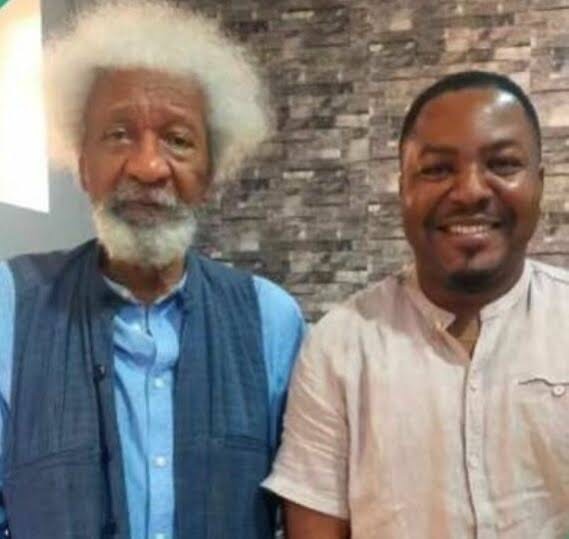Joshua Ojo, the producer of Wole Soyinka’s biopic, has shared his remarkable journey creating the film, which faced numerous challenges.
In an interview, Ojo recounted the extensive efforts and setbacks involved.
The production spanned over a year, largely due to the meticulous process of recreating historical settings based on photos and footage provided by Wole Soyinka himself.
However, their efforts were repeatedly hampered by setbacks, including a devastating accident that left Ojo hospitalized for months.

Reflecting on the ordeal, Ojo revealed that during the rainy season, crucial sets were destroyed, necessitating a complete rebuild.
His personal tragedy struck when he was hit by a car near the film set, resulting in severe injuries, including a badly broken leg.
Hospitalized and facing the threat of amputation, Ojo underwent multiple surgeries and endured a lengthy recovery process, during which communication with the cast and crew proved challenging.
He said, “It took us over a year to record. Wole Soyinka gave me some pictures and footage, so I tried to recreate them, the prison, his house and other places we used on set. It was during the rainy season, rain destroyed all we did at a point and we had to start all over again. After we started, I was going to a supermarket close by to get something to eat when I was knocked off by a car, the car dragged me for a while and I broke my leg.
“While at UCH, I was told that they had to amputate the leg or I undergo surgery. I was hospitalized for many months. I had iron and screws all over my leg. About 20-meter iron was placed inside the leg, I was given 14 injections per day. While battling with all that, I sent a message to the actors on set, and they all went.

“Many of them didn’t come back after I recovered a little. I was in a wheelchair then and called for the actors to come, unfortunately, you have to pay upfront in Nollywood so many didn’t come back again, they said they had other engagements and didn’t refund the money. A few were understanding and came back.”
Olaitan Ibrahim